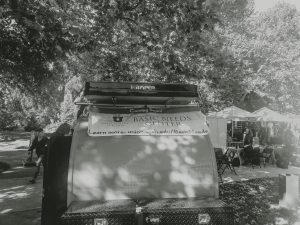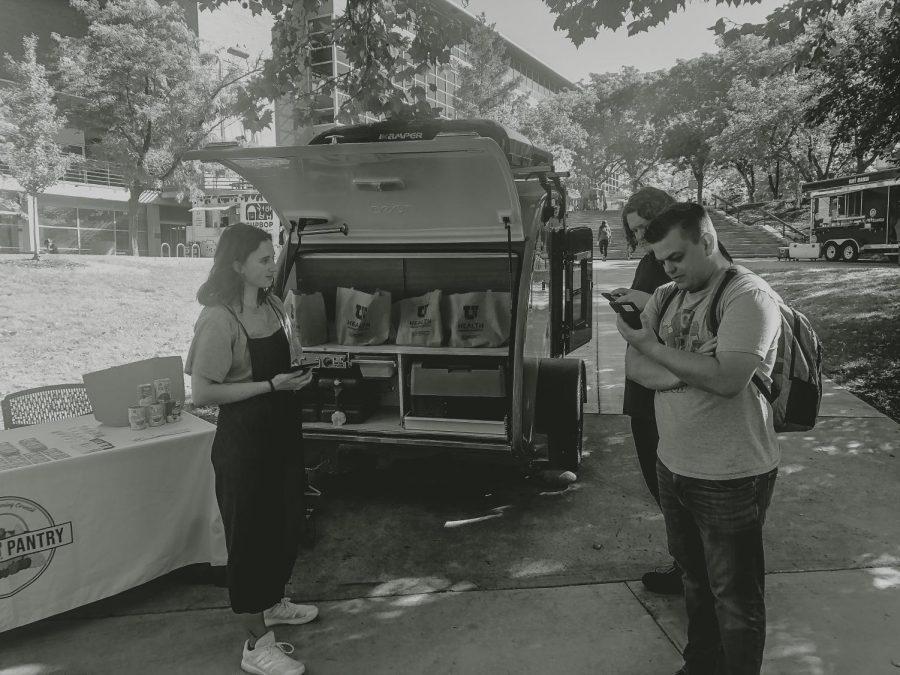Serving Students through the New Basic Needs Center
November 5, 2019
The University of Utah has been taking strides towards opening the Basic Needs Center in the coming spring semester to provide a centralized resource center for all students’ needs.
One issue that inspired the BNC’s creation was the high rate of student homelessness on campus. Associate director of the Women’s Resource Center, Kim Hall, saw an apparent need for accessible resources to students dealing with homelessness at the U, which inspired her to create the Homeless Student Task Force and has now led her to spearhead the BNC.
“Essentially, our goal is to provide a schedule of offices and assistance in the BNC that is predictable and easily accessed. Every student has an individual situation that puts them at risk for being unsafe, unwell and in danger of not completing their education. Our work will be to listen to a student’s situation and help them problem solve their situation utilizing campus and community resources,” Hall said.
Homelessness can often be accompanied by social stigmas towards the issue, which leads to the situation going unchecked and unresolved. Student homelessness is a major issue. Students struggling with homelessness will often not disclose their situation until they’ve formed a close relationship with a faculty or staff member and feel safe in seeking help. Affected students are sleeping in their cars on campus, in neighborhood libraries or couch surfing with friends. 
“Students are affected because being without a home is incredibly unsafe, contrary to mental well-being and negatively influences academic performance for the individual. For the U institution, it threatens retention and graduation rates among other issues. For the community, it puts students and community members at risk of being chronically homeless,” Hall said.
Upon creating the Homeless Student Task Force, they began to see a correlation between domestic violence and interpersonal violence conflicts with that of student homelessness, specifically with female students on campus. The Homeless Student Task Force works in aiding these students and providing them with resources for the varying issues which bring students to their present situation.
“We think that if we can assist students who are dealing with maintaining a place to live we are helping them with their mental and emotional well-being, we are assisting them to create a safe place for them to live,” Hall said. “We are assisting them to problem-solve their situation and get back on their feet in a way that is respectful and collaborative.”
The BNC saw the students’ need for a centralized location where they can efficiently address and solve their particular challenges. Homelessness has shown to be symptomatic of various challenges students deal with. The BNC hopes to provide all that it can for students, no matter how complicated or unique the issue may be.
“Problem-solving is a skill. Sometimes I think we assume that students, and those around us, have that skill. Because a situation sometimes feels like an unsolvable crisis doesn’t mean that it is an unsolvable crisis. Our job is to educate students as to the resources and opportunities that are right here on campus or can be accessed in the community to negotiate their barrier and continue with their education,” Hall said.
The director of student resources at ASUU, McKinlee Mayer, showed her appreciation. “I am thrilled that the university is creating this important and much-needed project. Some universities have started to implement BNCs into their normal resource pools. This is an opportunity to provide for students not only supplies but also a singular place for individuals to get everything they need.”
Mayer continued to talk about the importance of the center on campus for addressing the diverse needs of student.
“No one can ever truly know what each and every student is going through. Whether it’s food, legal, housing, etc., there are a host of different areas that some students need help with. Creating a center that provides those resources directly, or shows students how to get to those resources, is an imperative feature that all universities should implement.”
The BNC will be located by the food pantry in the Union basement and should open in the upcoming spring semester. Because this project is student-focused, the BNC is offering student surveys to inform them of the pressing issues students are facing at the U. The survey can be found in the union website, along with more information on the BNC.








